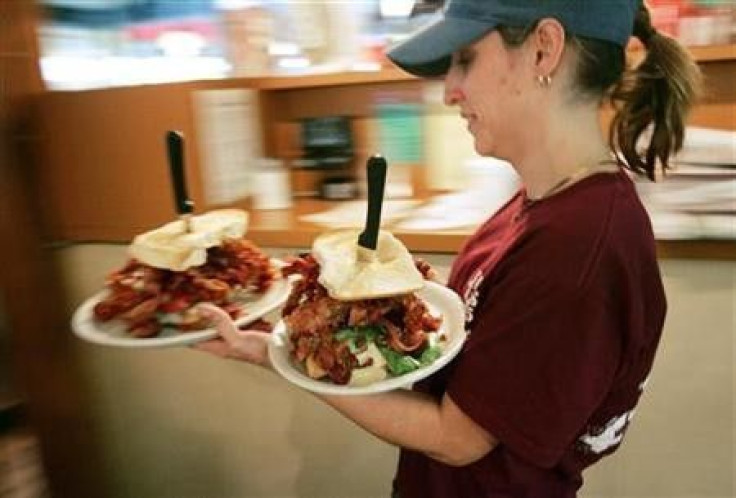Hard Times: One-Fifth Of UK Workers Earn Below Living Wage

One in five British workers earn less than the standard living wage, according to a report from KPMG UK, the accounting and consulting firm.
That translates into nearly 5 million people who are enduring higher costs of living amid a climate of government spending cuts and vanishing higher-paying jobs.
Among Britons who work in bars, restaurant, catering and retail, up to 90 percent are paid below the living wage.
KPMG explained that the living wage is a voluntary payment rate that some employers distribute and is designed to allow a basic standard of living for workers. That rate is currently £8.30 ($13.30) per hour in the London area and £7.20 elsewhere.
The living wage is different from the national minimum wage, which currently is set at £6.19 an hour.
The poorest workers in Britain are found in Northern Ireland, where nearly one-quarter (24 percent) of people earn below the living wage, followed by Wales at 23 percent. On a percentage basis, London and the Southeast have the lowest proportion of workers making below the living wage, at 16 percent.
Not surprisingly, Britain's lowest-paid workers have significantly cut down on making major purchases and are highly pessimistic about their financial futures.
Almost half (47 percent) think their finances will be in a worse state over the next year, while almost one-fourth (23 percent) think their job security has deteriorated.
“This research really lays bare the extent of the problem of low pay in Britain,” said Marianne Fallon, head of corporate affairs at KPMG in a statement.
“Times are difficult for many people, but, of course, those on the lowest pay are suffering the most. ... We would urge more big employers to consider paying their staff a wage that means they can afford a socially acceptable quality of life. We think it is the responsible thing to do.”
Frances O'Grady, the incoming general secretary of the TUC union, lamented: "It is shocking that in this day and age, one in five workers is still earning less than is needed to maintain a decent standard of living.
"The living wage is not a luxury and means that low-paid workers do not have to make tough choices over whether they can afford the everyday things that most of us take for granted, such as their fuel bill or a winter coat for their children.
"Many more employers could afford to adopt the living wage, and we hope that many more decide to pay it in the coming months," O'Grady added. "Now more than ever is the time for employers to put an end to poverty pay."
However, business interests said the current poor economic environment and higher energy costs preclude employers from paying more to their workers.
"Every employer would want to be as reasonable as they possibly can, but in the current economic climate it is not going to be possible for those sectors that have traditionally been unable to pay the national minimum wage," said Mike Cherry, policy chairman for the Federation of Small Businesses, according to the BBC.
© Copyright IBTimes 2024. All rights reserved.











